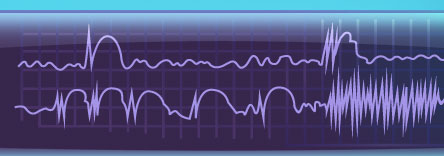
 |
 |
 |
| Home | About Epilepsy | Epilepsy Monitoring | Epilepsy Surgery | Information | Gallery | Contact Us | Terms and Policies |
|
Phase 1 Investigations:
The neurological history and examination are carried out to identify any underlying disorder and to localize areas of dysfunction. Symptoms at seizure onset, during progression and following a seizure can provide localizing clues.
EEG recordings done during a seizure and in between seizures are critical determinants of whether or not a patient is a surgical candidate. We require at least two seizures originating from the same focus or location before a patient can be considered for surgery.
Modern neuroimaging has had a major impact on the surgical management of epilepsy. A localized abnormality on MRI correlates strongly with the seizure focus and with good surgical outcome. For example, hippocampal sclerosis, which can be detected by MRI with nearly 95% sensitivity, is highly epileptogenic, and is usually the cause of seizures in patients with temporal lobe epilepsy.
This test assesses verbal and nonverbal intelligence, memory, executive functions and other cognitive and behavioral functions (e.g. depression).
Phase 2 Investigations:
Once the above Phase 1 investigations are complete, patients can be considered for possible surgery. Those with seizures that originate from multiple areas or involve vital functions are not considered to be good surgical candidates. In some patients intracranial EEG recordings, usually with subdural or depth electrodes, can more accurately locate the seizure focus and map functional areas before resection. Phase 2 investigations are often recommended in non-lesional cases without a clear epileptogenic area.
|
| Copyright | | | Disclaimer |